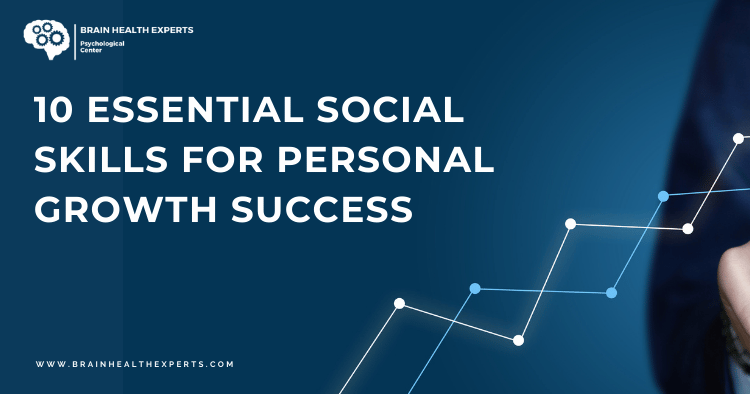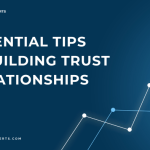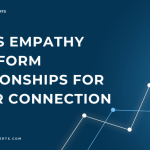Table of Contents
- Introduction
- 1. Effective Communication
- 2. Active Listening
- 3. Emotional Intelligence
- 4. Empathy
- 5. Conflict Resolution
- 6. Networking
- 7. Assertiveness
- 8. Adaptability
- 9. Non-verbal Communication
- 10. Teamwork
- Conclusion
- FAQs
Introduction
In today’s fast-paced world, the ability to navigate social situations is more important than ever. Social skills not only enhance personal relationships but also play a crucial role in professional success. This article dives into ten essential social skills that can foster personal growth and help you thrive in various aspects of life.
1. Effective Communication
Effective communication is the cornerstone of meaningful interactions. It involves clearly expressing your thoughts and feelings while also being aware of how your message is received.
- Tips for Improvement:
- Use “I” statements to express your feelings (e.g., “I feel…” instead of “You make me feel…”).
- Practice clarity—avoid jargon unless necessary.
- Adjust your language based on your audience.
By honing your communication skills, you’ll foster better relationships, whether at work or in personal life.
For more on effective communication, check out 10 Tips to Overcome Negative Thought Patterns Today.
2. Active Listening
Active listening goes beyond just hearing words; it involves fully engaging with the speaker. This skill is vital for understanding the nuances of communication.
- How to Practice:
- Maintain eye contact to show engagement.
- Nod and use brief verbal acknowledgments (e.g., “I see,” “Interesting”) to demonstrate attentiveness.
- Summarize what the speaker has said to show comprehension.
Active listening can drastically improve your relationships and reduce misunderstandings.
For more strategies, visit 10 Positive Thinking Techniques to Reduce Stress.
3. Emotional Intelligence
Emotional intelligence (EI) is the ability to understand and manage your emotions, as well as the emotions of others. High EI is linked to better personal and professional relationships.
- Components of EI:
- Self-awareness
- Self-regulation
- Motivation
- Empathy
- Social skills
To cultivate emotional intelligence, try journaling your feelings and reflecting on your emotional responses in various situations.
For a deeper dive into EI, refer to Understanding Emotional Intelligence: Key Insights & Benefits.
4. Empathy
Empathy is the capacity to put yourself in someone else’s shoes. It’s more than just understanding; it’s about feeling what another person feels.
- Ways to Enhance Empathy:
- Engage in active listening.
- Ask open-ended questions to understand others’ perspectives.
- Practice mindfulness to become more aware of others’ emotions.
Empathy is crucial for building strong, genuine relationships.
For insights on empathy, check out 10 Ways Positive Thinking Transforms Your Relationships.
5. Conflict Resolution
Conflict is a natural part of any relationship. The ability to resolve conflicts constructively is essential for personal growth.
- Conflict Resolution Steps:
- Stay calm and collected.
- Identify the root of the conflict.
- Communicate openly and respectfully.
- Collaborate to find a mutually beneficial solution.
Mastering conflict resolution can lead to healthier relationships, both personally and professionally.
For detailed techniques, visit 10 Effective Strategies for Conflict Resolution in Relationships.
6. Networking
Networking is not just for job seekers; it’s about creating meaningful connections that can enhance your personal and professional life.
- Networking Tips:
- Attend workshops, seminars, or social events in your field.
- Follow up with new contacts via email or social media.
- Offer help and support to others in your network.
Building a strong network can open doors to opportunities and support.
For more networking strategies, check out Top 5 Positive Thinking Workshops to Transform Mindset.
7. Assertiveness
Assertiveness involves expressing your thoughts, feelings, and needs confidently while respecting others. It’s a delicate balance that can empower you in various situations.
- How to Be Assertive:
- Use clear and direct language.
- Maintain a calm and steady tone.
- Practice saying “no” when necessary.
Developing assertiveness can lead to healthier boundaries and improved self-esteem.
For further reading, check out 10 Ways Positive Thinking Boosts Your Self-Esteem.
8. Adaptability
In an ever-changing world, adaptability is crucial. Being open to change and willing to adjust your approach can enhance your personal growth.
- Ways to Boost Adaptability:
- Embrace challenges as opportunities for growth.
- Stay informed and open to new ideas.
- Practice mindfulness to stay grounded during changes.
Adaptability can make you more resilient and better equipped to handle life’s ups and downs.
For more on adaptability, visit 10 Essential Techniques to Boost Your Resilience Today.
9. Non-verbal Communication
Non-verbal cues, such as body language, facial expressions, and tone of voice, play a significant role in communication. Understanding and mastering these can enhance your interactions.
- Key Non-verbal Cues:
- Eye contact indicates confidence.
- Open body language fosters trust.
- Facial expressions convey emotions more than words.
Be mindful of your non-verbal signals and learn to read those of others.
For more information, check out 10 Ways Positive Thinking Boosts Emotional Well-Being.
10. Teamwork
Being able to work effectively in a team is an invaluable skill in both personal and professional settings. Teamwork requires collaboration, respect, and communication.
- Tips for Effective Teamwork:
- Establish clear goals and roles.
- Foster an environment of open communication.
- Recognize and celebrate team achievements.
Strong teamwork not only leads to successful outcomes but also strengthens relationships.
For teamwork strategies, see 10 Effective Strategies to Enhance Workplace Mental Health.
Conclusion
Mastering these ten essential social skills can significantly impact your personal growth journey. Each skill contributes to building stronger relationships, enhancing communication, and navigating the complexities of life more effectively. Start small, focus on one skill at a time, and watch as your personal and professional life flourishes.
FAQs
Q: How can I improve my social skills?
A: Start by practicing effective communication and active listening. Engage in social settings and seek feedback from trusted friends.
Q: Are social skills innate or can they be learned?
A: While some people may naturally excel in social situations, social skills can absolutely be learned and improved with practice.
Q: Why are social skills important for personal growth?
A: Social skills help you build connections, enhance communication, and navigate challenges, which are all essential for personal and professional development.
By focusing on these social skills, you can create a foundation for success in all areas of your life. Happy growing!





